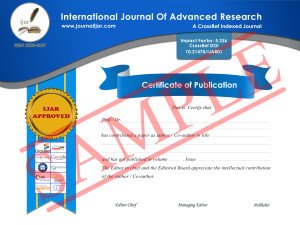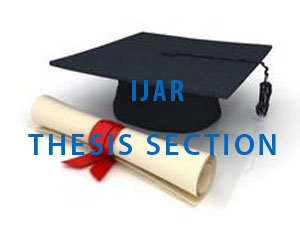Copyright Form
All authors submitting manuscripts to IJAR must complete and sign a Copyright Transfer Agreement. This ensures the originality of the work, proper citation of sources, and the transfer of rights to IJAR. The agreement also confirms that the manuscript has not been published or submitted elsewhere and that it does not infringe on any existing copyrights. Authors are responsible for securing permissions for any third-party content. The Corresponding Author’s signature is sufficient if all authors are not available. The completed copyright form must be signed and submitted to journalijar@gmail.com.











